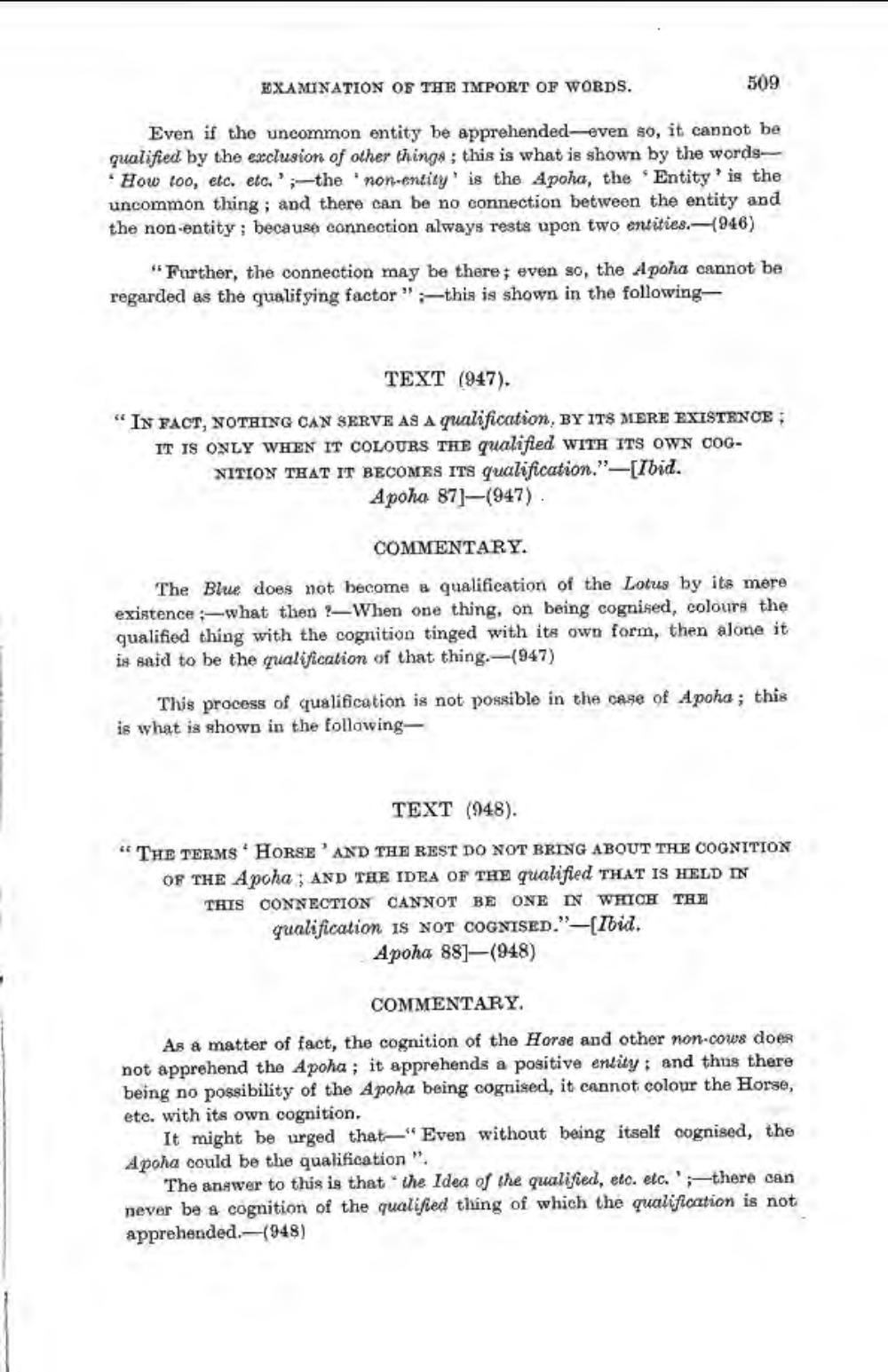________________
EXAMINATION OF THE IMPORT OF WORDS.
509
Even if the uncommon entity be apprehended-even so, it cannot be qualified by the exclusion of other things, this is what is shown by the words
How too, etc. etc. ;the non-entity' is the Apoha, the Entity is the uncommon thing; and there can be no connection between the entity and the non-entity ; because connection always rests upon two entities.-1946)
"Further, the connection may be there; even so, the Apoha cannot be regarded as the qualifying factor" this is shown in the following
TEXT (947). “IN FACT, NOTHING CAN SERVE AS A qualification, BY ITS MERE EXISTENCE ; IT IS ONLY WHEN IT COLOURS THE qualified WITH ITS OWN COGNITION THAT IT BECOMES ITS qualification." [Ibid.
Apoha 871-(947)
COMMENTARY.
The Blue does not become a qualification of the Lotus by its mere existence :-what then ?- When one thing, on being cognised, colours the qualified thing with the cognition tinged with its own form, then alone it is said to be the qualification of that thing. (947)
This process of qualification is not possible in the case of Apoha; this is what is shown in the following
TEXT (948).
« THE TERMS HORSE' AND THE REST DO NOT BRING ABOUT THE COGNITION OF THE Apoha; AND THE IDEA OF THE qualified THAT IS HELD IN THIS CONNECTION CANNOT BE ONE IN WHICH THE qualification is NOT COGNISED."-[Ibid.
Apoha 88]—(948)
COMMENTARY.
As a matter of fact, the cognition of the Horse and other non-cowe does not apprehend the Apoha ; it apprehends a positive entity: and thus there being no possibility of the Apoha being cognised, it cannot colour the Horse, etc. with its own cognition.
It might be urged that "Even without being itself cognised, the Apoha could be the qualification".
The answer to this is that the idea of the qualified, etc. etc. ';-there can never be a cognition of the qualified thing of which the qualification is not apprehended.-(948)




